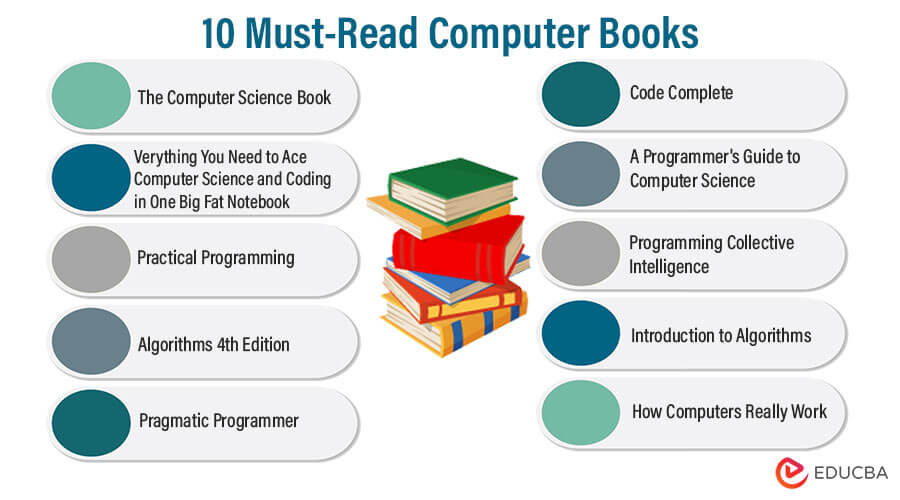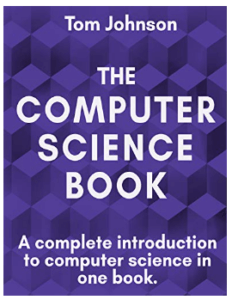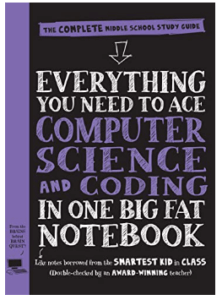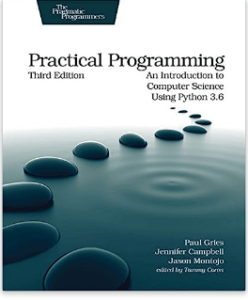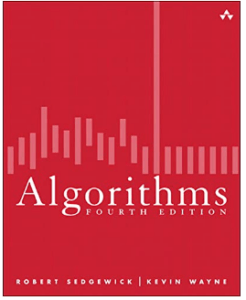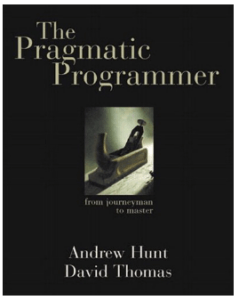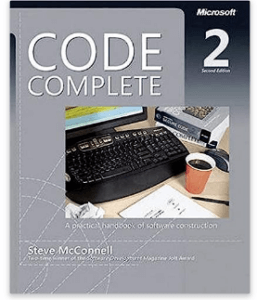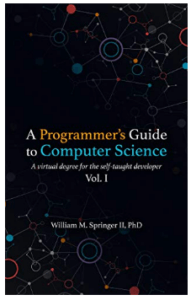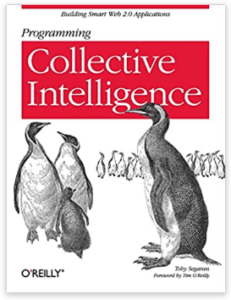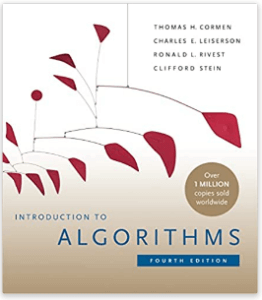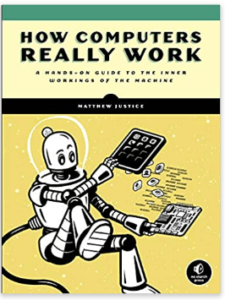10 Best Computer Books [2023]
A computer is a virtual electronic device that integrates hardware and software components to execute various tasks, including processing and storing data. Its complex architecture allows for efficient data manipulation and retrieval, making it an indispensable tool in different industries and fields of study. They have become integral to our modern world, crucial in multiple industries, businesses, education, and personal lives. Computer books cover computer-related topics, programming, software development, hardware, networking, and more.
These books provide beginners, professionals, and enthusiasts valuable insights, knowledge, and guidance. They serve as valuable resources to enhance understanding, learn new technologies, and stay updated in the rapidly evolving field of computer science.
Key Features
- Focus on practical application, providing readers with real-world examples, case studies, and hands-on exercises to reinforce learning and facilitate practical implementation.
- Computer books frequently cover the latest technologies, tools, frameworks, and trends in the industry.
- Computer books promote a culture of lifelong learning in the fast-paced world of technology.
- Inspire readers to continuously update their knowledge, explore new areas, and adapt to emerging trends and advancements.
10 Must-Read Computer Books
Here is the list of the top 10 computer books in no particular order.
| Sr No. | Books | Author | Published |
Rating |
| 1. | The Computer Science Book: A complete introduction to computer science in one book | Thomas Johnson | 2020 | Amazon: 4.7 Goodreads: 4.6 |
| 2. | Everything You Need to Ace Computer Science and Coding in One Big Fat Notebook | Workman Publishing, Grant Smith | 2020 | Amazon:4.7 Goodreads:4.3 |
| 3. | Practical Programming: An Introduction to Computer Science Using Python 3.6 | Paul Gries, Jennifer Campbell, Jason Montojo | 2017 | Amazon: 4.6 Goodreads:4.1 |
| 4. | Algorithms 4th Edition | Sedgewick Robert, Kevin Wayne | 2011 | Amazon:4.7 Goodreads: 4.4 |
| 5. | Pragmatic Programmer, The: From Journeyman to Master | Andrew Hunt, Thomas David | 1999 | Amazon:4.6 Goodreads: 4.3 |
| 6. | Code Complete: A Practical Handbook of Software Construction | Steve McConnell | 2004 | Amazon: 4.6 Goodreads: 0 |
| 7. | A Programmer’s Guide to Computer Science: A virtual degree for the self-taught developer | Dr. William M Springer II, Nicholas R Allgood, Brit Springer | 2019 | Amazon 4.4 Goodreads- 3.3 |
| 8. | Programming Collective Intelligence: Building Smart Web 2.0 Applications | Toby Segaran | 2007 | Amazon 4.1 Goodreads -4.08 |
| 9. | Introduction to Algorithms, fourth edition | Thomas H. Cormen, Charles E. Leiserson, Ronald L. Rivest, Clifford Stein | 2022 | Amazon 4.5 Goodreads- 4.3 |
| 10. | How Computers Really Work: A Hands-On Guide to the Inner Workings of the Machine | Matthew Justice | 2020 | Amazon: 4.8 Goodreads: 4.4 |
Let us discuss the reviews and takeaways of the Computer Books:-
Book #1: The Computer Science Book
Author- Thomas Johnson
Book Review
This is a rich guide to implementing the basics of computer science in a comprehensive way that will leave you mesmerized and awestruck. The way the information is portrayed concisely strikes as ideal for people who initially are not from a computer science background and want to know more about it.
Key Takeaways from that Book
- Learn about computer architecture, databases and theory of computation, etc.
- Further your knowledge of the core concepts of algorithmic complexity, concurrent programming, distributed systems, etc.
- Enriched with practical exposure to real-world problems to drill useful concepts
Book#2: Everything You Need to Ace Computer Science and Coding in One Big Fat Notebook
Author- Workman Publishing, Grant Smith
Book Review
An easy-to-read and exact compilation book on developing the basic implementation of code followed by elaborate code sections on Scratch, Python, and web development. This book has excellently portrayed modern-day coding algorithms for its intended audience.
Key Takeaways from that Book
- Includes but is not limited to computing systems, algorithms, boolean expressions, and binary code to get your feet wet in the basics.
- It also covers complex topics such as cybersecurity, web development, and HTML and CSS.
- It is meant for teenagers as a school guide but applies to all who want to brush up on their concepts.
Book#3: Practical Programming
Author- Paul Gries, Jennifer Campbell, Jason Montojo
Book review
A great stepping stone in the right direction of programming with the help of Python. Availing a practical hands-on approach to programming has never been easier than diving headfirst into this book.
Key Takeaways from that Book
- This book is divided into parts; the first covers fundamental programming ideas, whereas the second covers more advanced topics such as testing, databases, and user-friendly GUI.
- Learn problem-solving techniques to implement and approach relatively complex problems.
- Work with your data types, type annotations on parameters, return types and variable declaration, etc.
Book#4: Algorithms (4th Edition)
Author- Sedgewick Robert, Kevin Wayne
Book review
This book has brought the steadfast approach to learning and implementing knowledge to another level. Accoladed as one of the few best books in algorithms, it doesn’t disappoint you with its well-thought-out compilation of 50 algorithms to boost your learning.
Key Takeaways from that Book
- Learn the fundamentals of algorithms through a scientific approach and implement them thoroughly.
- Outlines graphs surveys, searching of symbol-table, red-black trees, binary heap, etc.
- Learn to tackle basic strings for string processing, substring search, etc., steadfastly.
Book#5: The Pragmatic Programmer
Author- Andrew Hunt, Thomas David
Book review
A relevant and valuable information guide for exploring bewildering analogies of programming. Learn how to fight software rot, write flexible and dynamic code, and a lot more filled with anecdotes and keen insights.
Key Takeaways from that Book
- Get out of the cycle of copying code from someplace else, from accidentally practicing efficient code using relevant notions and key pointers.
- Practice better coding techniques and ethics to give you a level up among other employees.
Book#6: Code Complete, Second Edition
Author- Steve McConnell
Book review
A robust and initiative-driven guide focused on highlighting the principles of software engineering. An analytical mix between core fundamental computing and its impact on the society around us.
Key Takeaways from that Book
- Contains topics such as error processing, a richer understanding of software development, prerequisites before construction, etc.
- Form a good understanding of key construction decisions, programming conventions, and design in construction, etc.
- It is recommended that advanced software developers and IT professionals pick up on new habits and improve their existing skills.
Book#7: A Programmer’s Guide to Computer Science
Author- Dr. William M Springer II, Nicholas R Allgood, Brit Springer
Book review
Being acquainted with multiple details on the subject matter of CS has never been this more accessible as it is with this book. The author brings together his extensive knowledge of computer science in this book to provide a complete skillset required by any college-going student.
Key Takeaways from that Book
- Further your learnings in asymptotic runtime, common graph algorithms, dynamic programming, and more.
- Experience the concepts of complexity theory, languages, state Machines, Turing machines, etc.
Book#8: Programming Collective Intelligence
Author- Toby Segaran
Book review
Known to many as a book that is practical, straightforward, and easy to implement side-by-side through its wide range of algorithm selections. The ability to present AI in Python is a recommendable aspect of this book.
Key Takeaways from that Book
- Apply Predictions in various algorithms and use a wide range of filtering techniques.
- Know real-world problem-solving skills with the help of vector machines and non-negative matrix factorization concisely.
Book#9: Introduction to Algorithms, Fourth Edition
Author- Thomas H. Cormen (Author), Charles E. Leiserson (Author), Ronald L. Rivest (Author), Clifford Stein
Book review
It is packed to be a comprehensive take on algorithms used in the corporate world, along with the latest findings on bipartite graphs, ML, etc. Though a large book, the book is filled with relevant factors to instill thought-provoking ideas.
Key Takeaways from that Book
- The brand-new edition has recurrence equations, hash tables, suffix arrays, etc.
- It offers a plethora of exercises and new problems to brainstorm solutions.
Book#10: How Computers Really Work
Author- Matthew Justice
Book review
It is an amalgamation of everything that goes in the computer books we read as a child, but amplify it a thousand times and throw in sparkles of fun and creativity, and we have this book right here. The most commendable part of this book is sure to be the activities that challenge your grasp.
Key Takeaways from that Book
- Create programs in assembly language to examine the resulting machine code.
- Dive in deep to understand the mechanism of logical operations in hardware.
Recommended Articles
We hope that this EDUCBA information on “Computer books” benefited you. You can view EDUCBA’s recommended articles for more information.
